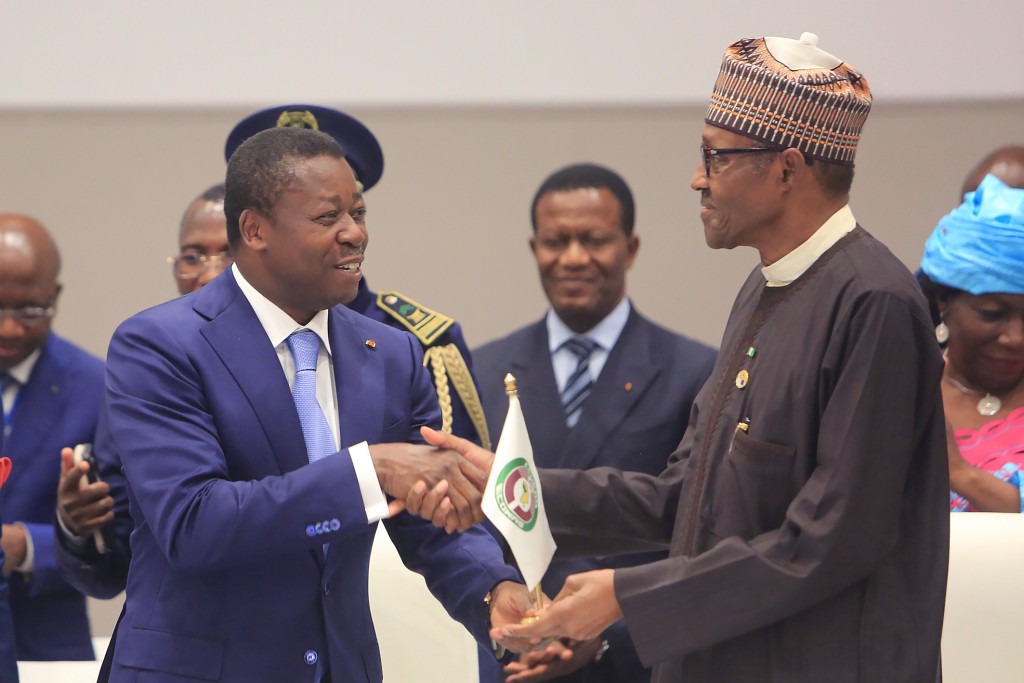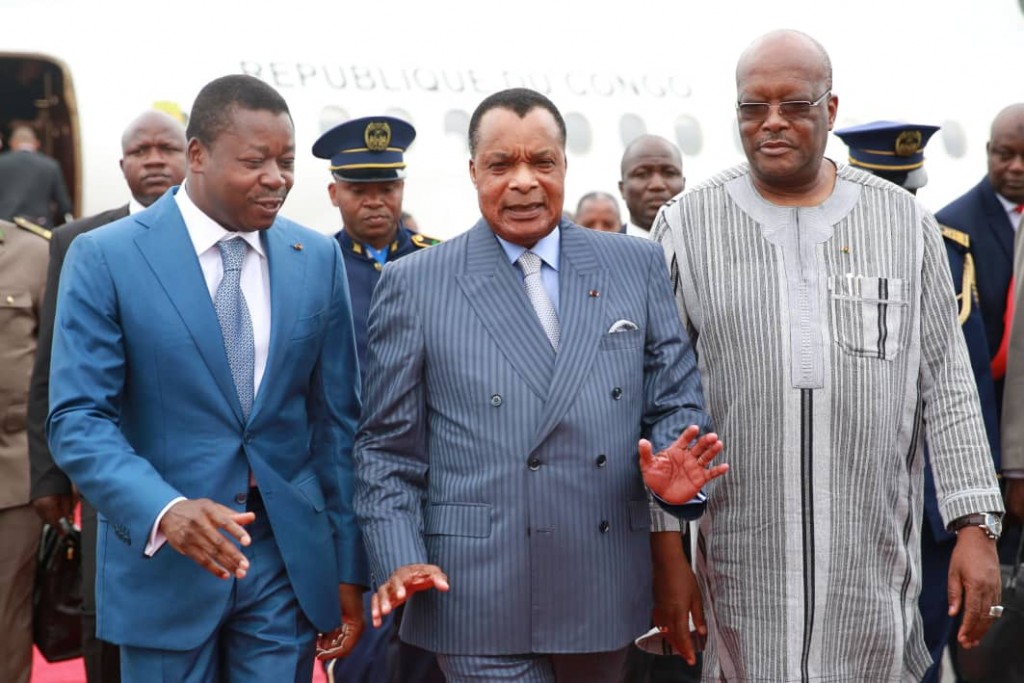Lome the capital of Africa

BY SOUMANOU SALIFOU
Lome the capital of Africa! It may sound far-fetched, like a challenge to Addis Ababa, which houses the headquarters of the continent-wide African Union—though the Ethiopian capital has never been formally designated as the capital of Africa. Calling Lome the capital of Africa not only has deep roots in history, but is also a just recognition of the country’s charismatic leader, President Faure Gnassingbe, who hosted three summit meetings of African heads of state this week alone in Togo’s capital, Lome, also known as Lome la belle (Lome the beautiful).
“By holding this summit, we are writing a new page of our cooperation which, I am sure, will mark the history of our two communities.”
—Faure Gnassingbe, the president of Togo.
One of Togolese newspapers called it “the ballet of the airplanes,” which is what it really was to see two dozen airplanes carrying heads of state from Central and West Africa to the international Gnassingbe Eyadema Airport in Lome on 29 July to attend the unprecedented joint summit meeting of the Economic Community of West African States (ECOWAS) and the Economic Community of Central African States (ECCAS), a mega gathering chaired by the Togolese head of state and his peer of Gabon, Ali Bongo Ondimba.
_______________________________________
Also: Togo in Obama’s Africa policy during the first term
________________________________________
In his welcome address to his fellow African heads of state, and in reference to the security threats, President Gnassingbe set the stage by stating:
“We must find together the best approach to face these threats in order to safeguard the peace and security of our people.”
He then stressed the milestone the summit was in terms of intra-African cooperation:
“By holding this summit, we are writing a new page of our cooperation which, I am sure, will mark the history of our two communities. I have no doubt that our shared resolve will guide us to courageous, ambitious and concrete decisions, in order for this summit to mark our common history.”

Ambition is, indeed, one of the forces that drive President Gnassingbe, 52, one of Africa’s youngest heads of state. With an MBA from The George Washington University in Washington, D.C., the sophisticated statesman has always demonstrated a remarkable eagerness to pull his country out of isolation and poverty, and to operate on the world’s stage.
Though hugely important, the joint ECOWAS-ECCAS summit was something like a warm-up session for the “ballet of summits” hosted this week by President Faure Gnassingbe (who is affectionately referred to by his people simply as Faure). The joint ECOWAS-ECCAS summit meeting was followed on 31 July by the 53rd ordinary summit meeting of ECOWAS, which focused on a wide range of issues including regional integration; regional security and stability (again); the ongoing restructuring of the organization’s secretariat; and the budget for the next financial year. That is not to mention sticky issues such as the farmers-herders recurring violent confrontations in Nigeria, the political situation in Togo, and so forth.
________________________________________
Also: Can Togo’s president survive the growing popular revolt?
________________________________________
Before tackling the above hot issues on the agenda of the 53rd summit meeting of the ECOWAS heads of state (after which the president of Nigeria, Muhammadu Buhari, became the chairman of the organization), the heads of state held yet another summit meeting devoted to the no-less important issue of single currency for the entire West African region. In essence, besides the highly technical issues that fall under the umbrella of the so-called ‘convergence criteria’, all the countries in the region were reminded to work hard for the attainment of that objective set for 2020. Nigeria, the region’s economic power—indeed Africa’s largest economy—which controls 65% of the region’s cash reserves, will assume the primary role leading to the take-off date.
________________________________________
Also: Togolese lawmaker Agbeyome Kodjo calls for “reforms in peace.”
________________________________________

Togo is one of the smallest countries in Africa in terms of physical and economic sizes. It has a population of 7,552,318 and covers an area of 56,783 sq kilometers. In comparison, its neighbor to the east, Benin, though not huge, covers an area of 112,622 sq kilometers and has a population of 11,038,805. To the west, Ghana, one of the continent’s largest countries in many respects, boasts a population of 28,308,301 and covers an area of 239,567 sq kilometers. Yet, Faure’s country has given Africa one of the chairmen of the Organization of African Unity—the parent organization of today’s African Union—Edem Kodjo. Kodjo ably served from 1978 to 1983.
Lome alone houses two important regional economic organizations: the West African Development Bank, a powerful economic engine for the eight-nation West African Economic and Monetary Union, UEMOA, that comprises Benin, Burkina Faso, Cote d’Ivoire, Guinea Bissau, Mali, Niger, Senegal, and Togo; and the ECOWAS Bank for Investment and Development, EBID, which serves the entire West African region that comprises, in addition to the UEMOA member-nations listed above, Nigeria, Ghana, Liberia, Sierra Leone, Cape Verde and Gambia.
________________________________________
Also: Benin’s democracy of paradoxes
________________________________________
Lome’s role as “capital of Africa” dates back to the tenure of Togo’s founding father, the late President Gnassingbe Eyadema who fervently engaged in settling various political disputes in Africa, especially in the western region. The late president who, during the 1978 summit meeting of the Organization of African Unity, pushed his fellow-countryman Edem Kodjo to the chairmanship when the organization was deadlocked on the choice of a new chairman, also hosted several Africa-wide summits of African heads of states, including one in the context of the collective efforts towards the creation of the United States of Africa spearheaded by his then-friend, the late Libyan leader Col. Muammar Gaddafi.


